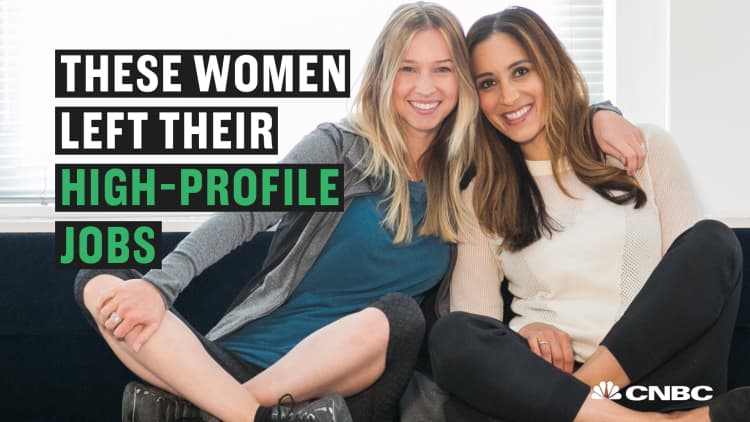Facebook's family of apps garner nearly 3 billion monthly users worldwide, but internally, the social media giant is struggling to represent the diversity of those it serves.
Diversity shortcomings at the top levels of business continue to be highlighted in the news, most recently with Goldman Sachs' announcement that it will no longer take companies public that don't have at least one diverse board member.
Facebook is no stranger to the controversy. The company's latest annual diversity report received much criticism after its findings revealed only a modest uptick in the number of female, black and Hispanic hires over the past year.
The report showed the number of female employees increased from 36.3% in 2018 to 36.9% in 2019, while black and Hispanic workers combined went from 8.4% to just 9%.
Following the disappointing findings, Facebook announced plans to double its number of female employees globally and black and Hispanic employees in the U.S. by 2024.
Maxine Williams, Facebook's global chief diversity officer, tells CNBC Make It that the goal is a big one, and Facebook might not succeed. But announcing the goal publicly was a necessary risk and the company's first step in achieving it.
"I'm going to put myself out there and say we want to hit these goals," Williams says. "And if we don't hit it, I hope we can have a conversation about what worked, what didn't work, and other people can learn from it, too, and we will have learned along the way.
"It's the learning that's important, it's the trying that's important," she says. "And I think having the courage to fail is important because you'll never succeed if you don't have the courage to fail."
In addition to providing training on managing bias and inclusion, Facebook says it has flown employees to places like Mississippi and Oakland, California, to discuss racial relations in America.
"What we are doing is creating an environment where the learning is there, the opportunities are there, and where we are building the right appetite for both the risk of it, but also the opportunity to keep doing better," Williams says.
How companies everywhere are trying to change
But it's not just Facebook. Employers in general are working to improve their diversity and inclusion (known as D&I) efforts by doubling down on hiring D&I specialists specifically. Those specialists are tasked with creating a more diverse staff, environment and workplace.
The Glassdoor "Job & Hiring Trends for 2020" report predicts that D&I recruitment will become a major priority in the coming year as corporations seek to modernize their culture and attract new employees.
These increased initiatives are a top employment trend that mirror the growing demand for D&I specialists in countries around the world. Job postings for the role surged 106% in the U.K. and more than half in Germany and France. In the U.S., there was an uptick of 30%, according to 2019 Glassdoor data.
The work begins with the hiring process, but needs to continue throughout the management process as well, Williams says. It includes teaching people the different oppressions that they may not be aware of, as well as implementing manager coaching and courses on how to tackle hard conversations.
"It's not won and done because you're often working against what might have been 30 years, 50 years, of somebody's experience, and so it's a continuous learning process," Williams says about changing minds that have been shaped over time.
Facebook falling short in its diversity hiring efforts over the last year speaks to a larger systemic issue that has long dominated the Silicon Valley scene, where tech titans struggle to recruit and maintain a diverse workforce. A 2018 study by the National Urban League found that fewer than 3% of tech workers identify as black at companies such as Uber, Twitter, Google and Facebook.
But for these companies, whose talent pool will continue to be dominated by millennials (the largest generation in the U.S. workforce), it is imperative they find a way to be more inclusive. Deloitte's 2019 Millennial Survey found that majority of millennials give a "great deal" or "fair amount" of importance to gender and ethnicity diversity when considering what companies to work for.
Williams acknowledges that progress takes time, but companies must be quicker to make investments in diversifying the workforce.
"I know that progress doesn't always meet the expectations of what people in the world expect we should be able to do if we care, and so I do think that there is a gap there," she says. "I like that people have high expectations of us. I have high expectations of us."
Like this story? Subscribe to CNBC Make It on YouTube!
Don't miss: Facebook exec says these are the 2 traits you need to have to get hired at the company



